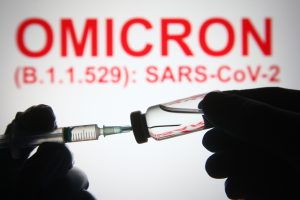
Professor Amtul Razzaq Carmichael, UK
The adverse medical and social consequences related to alcohol misuse are well-documented and well-understood. Alcohol is associated with significant and extensive harmful consequences on both the body and mind. Yet in the UK, one in six patients attends the emergency department due to acute alcohol intoxication. Around the Christmas festivities, as many as 70% of hospital attendances can be alcohol-related, according to NHS England.[1] These statistics caused Simon Jenkins to say, ‘Britain’s need for ‘drunk tanks’ shows how broken our society is’.[2]
Thirty years ago, the International Agency for Research on Cancer reported that beverages containing alcohol can lead to the development of cancer. While later research further established this, it seems to have made little impact on society’s attitude towards and acceptance of alcohol. The Global Burden of Disease Study 2016 ranked alcohol as the seventh leading cause for death and in 2016 alcohol use led to 2.8 million deaths. In the UK, 10 million adults regularly drink more than 14 units of alcohol each week – it is estimated that alcohol and other life-style-related factors may lead to 63,000 preventable deaths over the next five years.[3] In 2016 in the UK, more than 7,000 deaths were related to alcohol intake. Cancer is one of the major health risks associated with alcohol. In this month’s issue, we present the strong evidence that drinking alcohol increases the risk of cancer.
But cancer is not the only major health-risk associated with alcohol. Alcohol-use disorders, cardiovascular disease, pancreatitis, liver cirrhosis, and mental health issues are all causally linked to alcohol. Even then, alcohol consumption has been increasing in some parts of the world such as India and China; and more worryingly, alcohol consumption in younger people is on the rise. With nearly 2 billion people consuming alcoholic beverages regularly, this is a self-inflicted, preventable and modifiable risk-factor for acute and chronic ill-health. The increasing rate of alcohol-related deaths, a need to have to set up drunk-tanks (separate facilities for those who are intoxicated), and professional organisations seeking policy change on alcohol, all draw attention to clear need for alternative thinking.
Alcohol-related harm is preventable, and prevention is paramount. The best way to prevent disease and preserve the health of both the individual and society is total abstention from alcohol. This is, in fact, what Allah the Exalted instructs in the Holy Qur’an: ‘O ye who believe! Wine and the game of chance… are only an abomination of Satan’s handiwork. So shun each one of them that you may prosper. Satan seeks only to create enmity and hatred among you by means of wine and games of chance, and to keep you back from the remembrance of Allah and from Prayer…” [4]
The Arabic word al-khamr, used in this verse, means anything that intoxicates or alters the mind. Thus, all forms of intoxicants are forbidden. These verses clearly explained, 1500 years ago, the harmful effects of alcohol on the individual and the society.
Alcohol, in any amount, has the potential to cause significant harm; the Global Burden of Disease study, collating the most comprehensive data on the causes of illness, has found that the level of alcohol consumption that minimised harm to health was zero drinks per week.[5] In the face of such unambiguous evidence, the question is whether it is ethical or justifiable to continue to allow people to suffer the ill effects of a poisonous, intoxicating substance that is destroying the fabric of society. More than three million people are expected to take part in ‘dry January’, a total abstinence from alcohol. Perhaps extending this pledge for a further 11 months and beyond would be an even wiser choice.
About the author: Professor AR Carmichael is a surgeon by profession and has an interest in the philosophy of religion. She is widely published in peer-reviewed medical literature and serves the Ahmadiyya Muslim Community in various capacities.
End Notes
- https://www.theguardian.com/society/2017/dec/29/were-not-the-national-hangover-service-nhs-boss-warns-revellers
- https://www.theguardian.com/commentisfree/2017/dec/29/britain-drunk-tanks-broken-society
- https://www.thelancet.com/journals/lancet/article/PIIS0140-6736(17)32866-0/fulltext
- The Holy Qur’an, 5:91-92.
- https://www.thelancet.com/journals/lancet/article/PIIS0140-6736(18)31310-2/fulltext






Add Comment